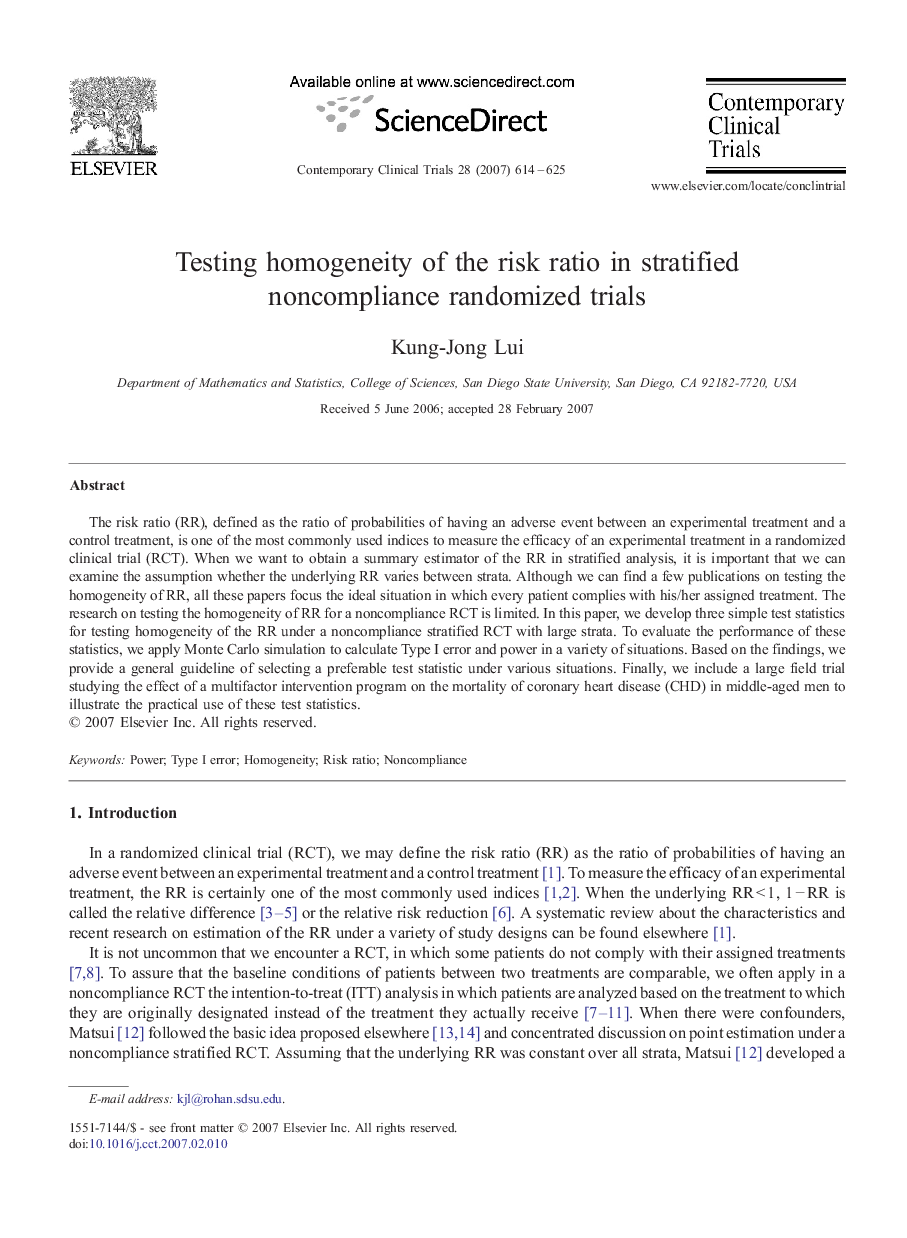| Article ID | Journal | Published Year | Pages | File Type |
|---|---|---|---|---|
| 3463422 | Contemporary Clinical Trials | 2007 | 12 Pages |
The risk ratio (RR), defined as the ratio of probabilities of having an adverse event between an experimental treatment and a control treatment, is one of the most commonly used indices to measure the efficacy of an experimental treatment in a randomized clinical trial (RCT). When we want to obtain a summary estimator of the RR in stratified analysis, it is important that we can examine the assumption whether the underlying RR varies between strata. Although we can find a few publications on testing the homogeneity of RR, all these papers focus the ideal situation in which every patient complies with his/her assigned treatment. The research on testing the homogeneity of RR for a noncompliance RCT is limited. In this paper, we develop three simple test statistics for testing homogeneity of the RR under a noncompliance stratified RCT with large strata. To evaluate the performance of these statistics, we apply Monte Carlo simulation to calculate Type I error and power in a variety of situations. Based on the findings, we provide a general guideline of selecting a preferable test statistic under various situations. Finally, we include a large field trial studying the effect of a multifactor intervention program on the mortality of coronary heart disease (CHD) in middle-aged men to illustrate the practical use of these test statistics.
